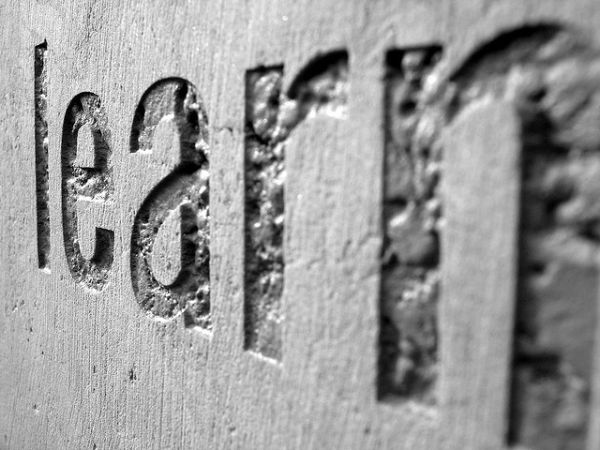
Diary of a Straight African Ally-in-Training: “LGBT Issues Aren’t Just about Homophobia”
- Published in: Empowerment & Spirituality, Purple Hearts: Ally Love
- Written by Saba Teklu
- Leave a reply
- Permalink
It’s a rare occasion that I choose to do something with thought-through expectations, and then find out that the experience wasn’t what I thought it would be. Yet, this internship is one of those occasions.
An Uncomfortable Truth: Questioning the Value of My Allyship
When I first applied to the QWOC Media Wire Social Media Internship, I thought I’d be writing fairly objective posts that dealt-with a minimal input of my beliefs. This is not to say that I don’t support the LGBT community whole-heartedly, but up to this point I’d considered myself a mere bystander to the movement. The first glimpse of my altered expectations came during the interview. I wasn’t being told what to believe, I was being asked. And I wasn’t told what this experience would do to change my future, but I was being asked what I aspired to be and how I would use this internship to achieve my goals, which included being a more informed LGBT ally, a better human being. So, what I originally thought would be an objective endeavor turned has turned in a heavily subjective experience.
Needless to say, I was honored with the offer of the internship (I obviously accepted), as well as the opportunity to contribute my experience as an African ally in the form of blog posts; I’ve written two posts, which I’m very proud of. The first was in reference to the clash between my Ethiopian culture and the LGBT community. The second was a fairly objective piece about the International Day Against Homophobia, including tips for small ways to support LGBT people. These weren’t difficult to write; the first required only my personal experiences and the other was factual.
However, in the process of coming up with an idea for my third post, I began noticing a reoccurring theme—homophobia. Why was I so fixated on homophobia? Why is it so much easier to highlight the bad and not the good? I became concerned with my own values and myself during the entire process, and reached out to my supervisor/editor. I wondered, how could I position myself as an ally without assuming the experiences of LGBT people? What if I offended those who I am supposed to align myself with because of the assumptions I make?
When Words from Allies Do More Harm Than Good
I became flustered with the idea that all I could be successful in posting about was the hate and disregard the LGBT community faces. Homophobia is a reality and I know that it isn’t right. But, homophobia isn’t the most important aspect of LGBT life; there is enough media out there that continually victimizes the LGBT community without me — an ally — further adding to it.
Gestalt psychology is all about the sum of the whole being greater than it’s parts. So I’ve committed myself to learning more, asking more questions, and finding a way to look at my work as depicting and reporting on our community as a whole, as a living, breathing membrane of people from all walks of life. LGBT issues aren’t just “issues” but important aspects of people’s lives, including their humanity through culture, livelihood, and yes acceptance, and tolerance. I know now that to be supportive means more than just saying it, I need to build more relationships, and in so doing, broaden my perspective.
Incidentally, my sister is the only person I’ve been sharing my internship experiences with. She’s been graceful in her reactions — greatly moderated in comparison to myself — and views my internship as a personal growth opportunity for me. Especially after moving away from home and soon after, traveling to Botswana for a semester, her vision of the world and its inhabitants is much more expansive than mine. She is my “base” in a game of tag– my anxieties will run around but I know I’m safe to unleash them in her presence. I’ve observed that our relationship permits me to be unfiltered in expressing my views and getting raw honest feedback moreso than I would in spaces (like this one) when I’m trying to be really careful with what I say and how I say it, because the harm I would cause (however inadvertently) would be real.
Up until this point, I never really watched the way I said things. But now, when my words are reaching out to people from many walks of life, I’m realizing that there’s so much more at stake than my “learning” process.
How to Be A Better Ally: Build Relationships, Educate Yourself, Stay Open to Feedback
Still, and although it’s only been a few weeks since the internship started, I’ve learned so much. The most important thing I’ve learned is to always acknowledge that I simply don’t know and be more aware of the assumptions I make all the time.
So here are my guiding principles for right now:
The first step to any journey of growth is education. I must educate myself on the community and people that — I must admit — know nearly nothing about. I must form more personal relationships to ground my advocacy in real, lived experiences. Only then can I truly claim to be supportive. Only after I’m armed with information and experiences from and of real people can I truly grow, both as an ally, and as a person. This is only the beginning and my room for growth as an ally is as infinite as the resolve I have to remain open to direction and feedback.
What suggestions or tips would you offer someone who’s just learning? How can I become a better ally? Are there any articles, films, books you would suggest that I and other straight POC allies read?
In love and solidarity.
- dsq_thread_id:
- 708767353
- tmac_last_id: